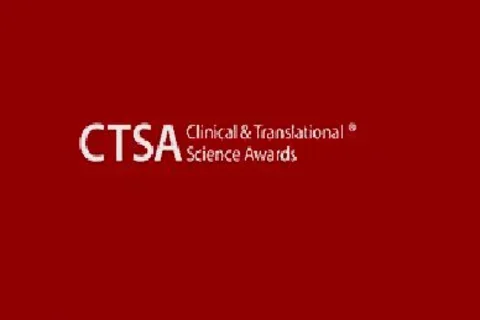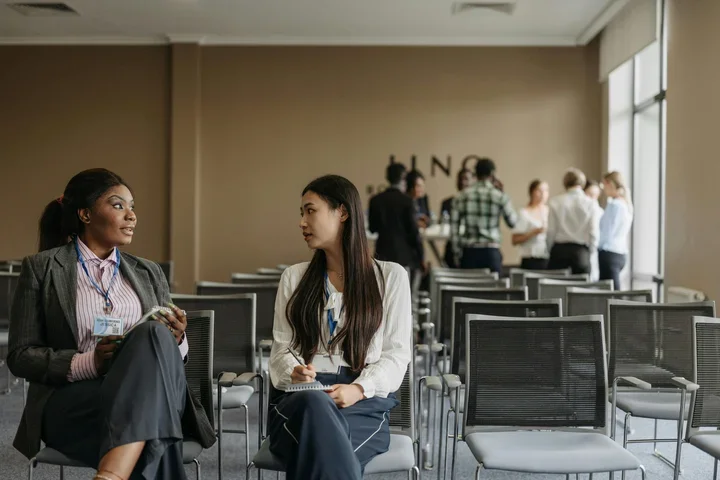UCLA CTSI receives $69.6-million Clinical and Translational Science Award

The National Institutes of Health has awarded $69.6 million to the UCLA Clinical and Translational Science Institute, a research partnership of UCLA, Cedars-Sinai Medical Center, Charles R. Drew University of Medicine and Science, and the Los Angeles Biomedical Research Institute.
The new five-year grant follows the consortium's initial $83.1 million Clinical and Translational Science Award in 2011, bringing the total support from NIH's National Center for Advancing Translational Sciences to more than $152.7 million.
Both grants support the continued development of the prestigious consortium, one of more than 60 such research partnerships established by the NIH to enhance biomedical research. The consortium accelerates the translation of laboratory discoveries into more effective treatments for patients; actively engages communities in clinical research; and trains future generations of researchers to work across scientific disciplines to improve health. The mission of the UCLA Clinical and Translational Science Institute (CTSI) is to bring biomedical innovations to bear on the greatest health needs of Los Angeles, the largest county in the country, and one of the most diverse.
"The NIH's generous investment is further enabling UCLA and its consortium partners to improve the health of Los Angeles in a meaningful way and to enhance the quality of life in our community," said Dr. John C. Mazziotta, vice chancellor of UCLA Health Sciences and chief executive officer of UCLA Health. "As we go forward and make continued improvements in translating research into better treatments for those diseases that cause the most disability and early deaths in Los Angeles County, our experiences and successes will provide a model for health improvement nationwide."
To date, the CTSI has supported the work of more than 1,600 investigators, including basic scientists, clinicians and population researchers. CTSI infrastructure has supported 40,000 clinical research visits in outpatient, inpatient and community settings.
CTSI-supported researchers have published more than 1,600 scientific articles and been awarded 370 pilot grants, enabling them to generate data that they leveraged into $58 million in additional outside funding.
The CTSI itself also has:
- Supported the training of more than 950 junior faculty members, professional students and pre- and post-doctoral scholars through fellowships in clinical informatics, a master's degree program in biomedical informatics and fellowships in population research
- Spearheaded the creation of the Department of Biomedical Informatics and Computational Medicine at UCLA
- Created the Los Angeles Data Repository, a federation of clinical data warehouses from six Los Angeles institutions: UCLA, Cedars-Sinai, Charles Drew, USC, Children's Hospital Los Angeles and City of Hope
- Launched a partnership with Los Angeles County to evaluate approaches for improving care for the nearly 700,000 people treated annually in the county health system
Going forward, the CTSI has five goals:
- Prepare staff, students, scholars and faculty to conduct high-quality, multidisciplinary team science
- Engage stakeholder communities in research
- Ensure research includes children, older adults and groups that experience health disparities because of race, ethnicity, gender, poverty, disability and other factors
- Improve research methods, streamline research processes and support multisite studies
- Use informatics to process and understand scientific and medical information to increase the impact of our research
"This award supports our comprehensive translational research programs dedicated to advancing scientific discoveries for the direct benefit our patients and the community," said Dr. Shlomo Melmed, executive vice president and dean of the medical faculty at Cedars-Sinai. "As the largest academic medical center in California, Cedars-Sinai is pleased to partner with our UCLA-wide colleagues in this multidisciplinary endeavor to improve the health of our community and enhance our diagnosis and treatment of disease."
David Meyer, president and chief executive officer of the Los Angeles Biomedical Research Institute, said that with the renewal of this grant, crucial funding will flow to accelerate the development the next generation of devices, diagnostics and therapies, and to advance the field of precision medicine.
"For more than six decades, innovations at LA BioMed have placed tools in the hands of physicians and healthcare workers," Meyer said. "Through the CTSI partnership and the benefits that it brings to LA BioMed, we will be able to ensure that future discoveries will move out of the laboratory and even beyond the bedside to improve the health of our diverse community and worldwide."
Dr. Steven M. Dubinett, director of the CTSI, Senior Associate Dean for Translational Research and Associate Vice Chancellor for Research at the David Geffen School of Medicine at UCLA, said the CTSI grants allow for the creation of "a borderless clinical and translational research institute that brings UCLA CTSI innovations and resources to bear on the greatest health needs of Los Angeles."
"This funding is helping us develop new means to retain, recruit and empower scientists to work together across disciplines, departments, institutions and geography," Dubinett said.
Said Dr. David M. Carlisle, president and chief executive officer of Charles R. Drew University of Medicine and Science: "The continuation of the Clinical and Translational Science Award will further the work that has progressed by the consortium of institutions for the next five years. The NIH's significant investment in Los Angeles will help to facilitate the our mission and help to improve the capacity of universities, academic medical centers, clinicians and researchers to collaborate with each other and with the community to advance health science research in ways that will reduce health disparities while advancing individual, community and population health."
Further reading:
Image caption:
Image source:



